What Studying Abroad Taught Me About Learning a New Language
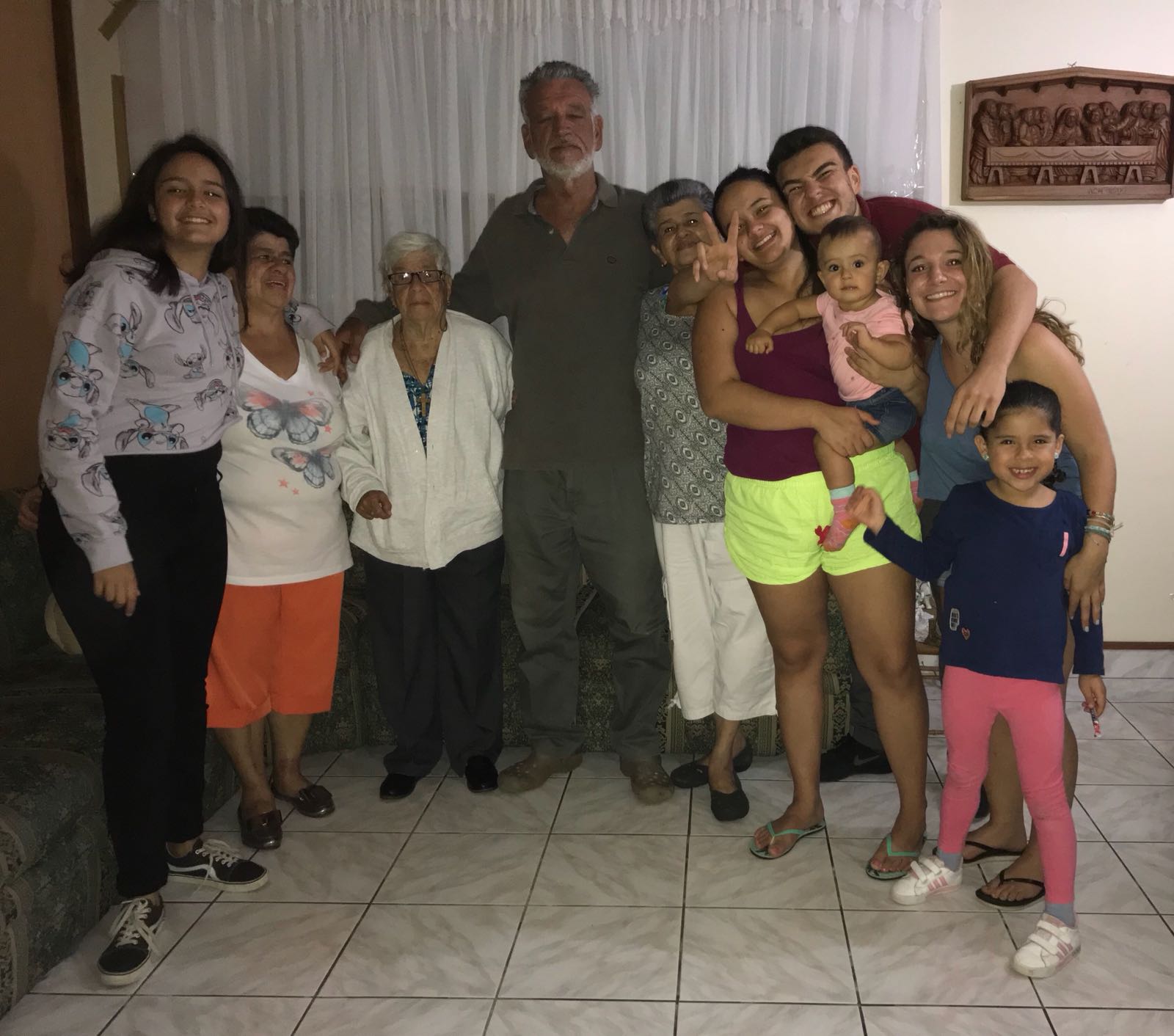

Doubt
“Sí, se puedes.” These are the words that hung on a poster on the back wall of Rodney’s (my IFSA Resident Director) office. The phrase means “Yes, you can” in Spanish.
However, as I sat in front of Rodney, nearly in tears, I could not bring myself to believe these words.
I had been abroad in Costa Rica with IFSA for about a month and a half at this point, and I did not understand why I was still struggling with the language barrier so much. The goal of the program is to completely immerse students in Spanish, to help us learn the language.
We live with host families, attend classes at the national university with Costa Rican students, and are strongly encouraged to use Spanish at all times. I am a Spanish major, and I have a lengthy history of taking Spanish classes, so why was this so hard for me? I couldn’t tell. All I knew was that I constantly felt like a burden to my classmates for asking them to reiterate what our professor said, in slower, simpler Spanish, after class.
The Turning Point
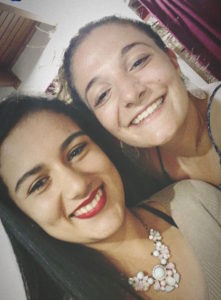
Rodney ended up giving me the most useful advice anyone has ever given me to date. He told me that I had to stop thinking like a translator, and more like a Spanish speaker. He told me that I am making so much more work for myself, by changing every word I hear in Spanish to English in my head.
That right there was the answer as to why my classes were so hard for me. I was thinking much harder than I should have been—translating every single word.
“Well, how can I think like a Spanish speaker if I’m so used to thinking in English?” I challenged him. The answer was simple. I had to embrace the language around me, rather than let it discourage me. The only way to do this was to immerse myself even deeper in the community.
Making Change
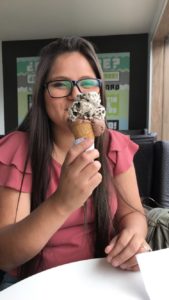
Rodney did what he could to help me do this. He set me up with a weekly Spanish tutor, Karen. He also introduced me to community engagement opportunities, such as volunteering. Through IFSA, I began teaching English weekly at a children’s nursery right by my homestay.
Although I was speaking English with the students, I would always stay and play with the children during their recess hour after the English classes, where they were permitted to speak Spanish again. During this time, the children were eager to help me with my Spanish. And I was eager to learn.
Additionally, I began volunteering through another IFSA program at the university called “Amigo Tico” (Costa Rican Friend). This program was conversation-based. I was assigned a Costa Rican conversation partner, with whom I would speak half of the time in English, and half of the time in Spanish. My partner, Hazel, and I met up for lunch weekly. She even invited me over to her apartment one night to eat a traditional Costa Rican casado for dinner with her and her friends.
Although I was able to immerse in many ways through opportunities IFSA provided, I knew that I had to go out of my way to find my own means of immersion as well. I started reaching out to my classmates, asking them if they wanted to do homework after class, or grab a cafecito. I started getting into weekly routines with my classmates. For instance, every Monday I would get lunch with Mapa after our Creative Poetry class. Every Tuesday, I would eat lunch with Hazel and her friends. Every Wednesday I would eat lunch or go out for ice cream with Karen, after our tutoring session. Every Thursday, I would grab a cafecito or go shopping with my sociology partner, Francela. My relationships with these students grew immensely throughout the semester, and I am lucky enough to remain in contact with all of these people to this day.
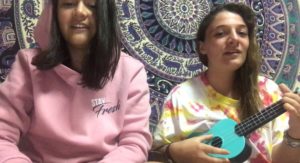
I also made sure to set aside special time to spend with my host family. My host sisters and I would schedule movie nights, baking nights, and singing nights. I brought my ukulele with me abroad, and my younger host sister and I would sing together in Spanish often. Singing in Spanish really helped me with my pronunciations and speaking speed. I even ended up writing a song in Spanish about my experience in Costa Rica, that my host sister plans to perform at an upcoming IFSA event with the ukulele I decided to give her.
Yes, I Can!
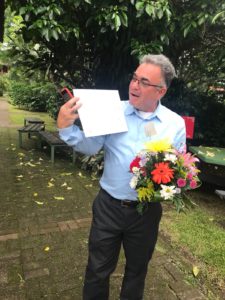
It turns out that “Sí se puedes” has more truth to it than I thought. While I was so busy immersing myself in the community around me, I didn’t even notice that I had stopped translating in my head.
I would hear a word in Spanish, and have the same cognitive reaction to that word, without hearing the English translation in my head. I was thinking like a Spanish speaker for the first time in my life, and it felt unreal.
This is a skill that I now utilize every day in my Spanish classes, and will continue to utilize throughout my life as I pursue the language even deeper. I hope to travel to other Spanish-speaking countries in my future, and teach English as a second language.
I am so grateful for IFSA and for the level of immersion it provides for abroad students. I would not be the Spanish student I am today if it were not for this program, and the guidance I was given by the IFSA staff members, like Rodney. I hope that this blog post catches the attention of a prospective language learner, and encourages them to take on the challenges and the rewards that come along with studying abroad.
Marisa Iannitto is a Spanish and English student at Saint Michael’s College and studied abroad with IFSA at Universidad Nacional in Heredia, Costa Rica in Spring 2018.